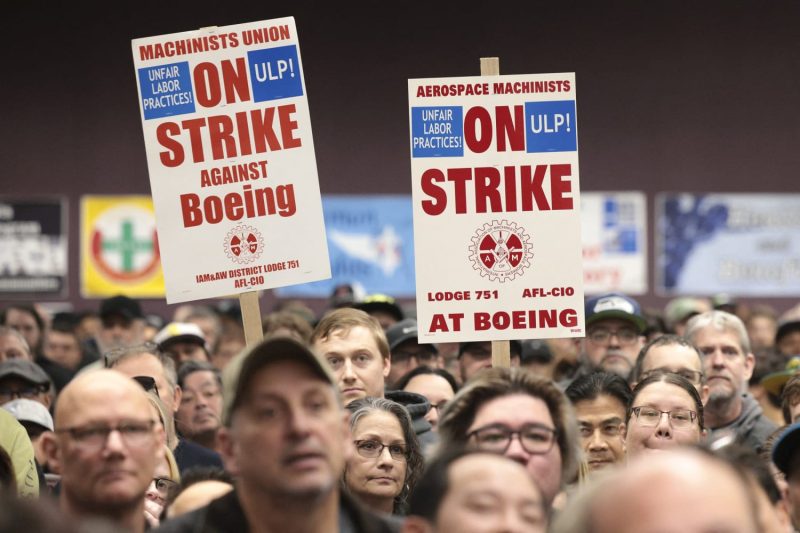
Boeing Strike Continues: Machinists Decline New Labor Contract!
Boeing Machinists Decline New Labor Agreement, Draw Out Strike
Before a more in-depth discussion commences, it’s essential to have a grasp of the key players involved. Boeing, an American multinational corporation that designs, manufactures, and sells airplanes, rotorcraft, rockets, satellites, telecommunications equipment, and missiles globally, is currently at the forefront. On the different side, the formidable International Association of Machinists and Aerospace Workers (IAM), which represents a significant concentration of the company’s labor force. Over the years, these two entities have shared a partnership permeated with both cooperation and contention.
Among the recent contentious happenings, the rejection of a new labor contract proposed by Boeing stands paramount, lengthening a strike that threatens to convulse the company’s production lines further. The fallout from the decision has drawn deep lines in the sand between the corporate executives and the machinists, an impasse that encompasses issues such as job security, pay raises, and healthcare benefits.
Resolutely, the IAM workforce, which includes electricians, painters, metal workers, and other specialists crucial to aircraft production, chose to decline the offer, citing it as insufficient to meet their demands. This act extends the strike that has been in place for more than a month now, casting significant shadows over the assembly lines of Boeing’s commercial aircrafts, including the much-awaited 777X jet.
The IAM representatives have precisely outlined their reasons for rejecting the contract. There is the job security aspect, a persistent qualm amongst the rank-and-file members who have long been worried about offshoring of their jobs. Added to this, the union sought more significant pay raises and improved healthcare benefits, which they argue the new contract failed to address adequately.
Furthermore, the IAM has expressed concerns that the contract doesn’t adequately value its members’ contribution. They cite that most of the profits are divided amongst the top executives and shareholders, while they, the people on the factory floor making the behemoth crafts fly, are left with near-static wages battling rising costs of living and healthcare.
On the other hand, Boeing argues that the cost implications forced them to stick to their guns. They postulate that raising wages significantly and further buoying the already plush healthcare benefits would increase production costs. This cost surge would then have to be spread out to the customers, which could subsequently cause them to lose out to rival companies in an already aggressive global aerospace market.
Notably, while this stalemate has caused a significant stir in Boeing
